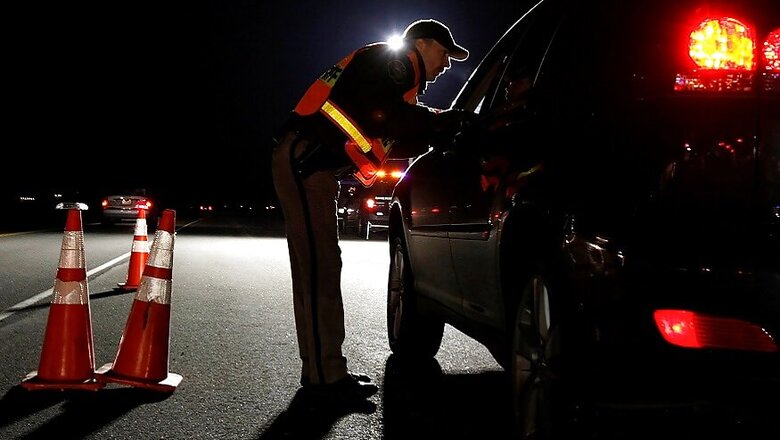
views
U.S. data has shown for the first time that drivers killed in crashes were more likely to be on drugs than drunk, with marijuana involved in more than a third of fatal accidents in 2015, a study released on Wednesday showed.
Forty-three percent of drivers tested in fatal crashes around the country in 2015 had used a legal or illegal drug, topping the 37 percent who showed alcohol levels above a legal limit, according to the report by the Governors Highway Safety Association and the Foundation for Advancing Alcohol Responsibility, a nonprofit funded by distillers.
Among drivers killed in crashes who tested positive for drugs, 36.5 percent had used marijuana, followed by amphetamines at 9.3 percent, the study showed. It was based on the most recent available U.S. state data reported to the National Highway Transportation Safety Administration (NHTSA).
The study included any substance that can impair driving, including illegal drugs, prescription medications, legal non-medicinal drugs and over-the-counter medicines.
"People generally should get educated that drugs of all sorts can impair your driving ability," said Jim Hedlund, a former NHTSA official who wrote the report. "If you're on a drug that does so, you shouldn't be driving."
In 2013, alcohol- and drug-related traffic fatalities were at about 40 percent, with alcohol slightly higher, Hedlund said in a telephone interview.
The drug fatality level has risen steadily since 2005 when alcohol was detected in 41 percent of traffic deaths and drugs in 28 percent, he said.
Hedlund said he was unable to directly link increased U.S. drug use, such as the opioid epidemic, to the rise in drugged drivers.
The number of U.S. deaths from opioids, including prescription painkillers and heroin, has quadrupled since 1999, with more than 33,000 deaths in 2015, according to the U.S. Centers for Disease Control and Prevention.
The increase in drug-related driving deaths also coincides with more marijuana legalization, with 29 states and the District of Columbia allowing its medical or recreational use. The report said that marijuana-related traffic deaths in Colorado increased by 48 percent after the state legalized recreational use of the drug.
But Michael Collins, deputy director of the Drug Policy Alliance, an advocacy group, questioned that connection. Because marijuana can linger in a system for weeks, a driver might not be intoxicated when being tested, he said.
"I think you really need to take these kinds of analyses with a pinch of salt," he said in a phone interview.
The report cautioned that the data varies widely on how many drivers are tested and how.




















Comments
0 comment